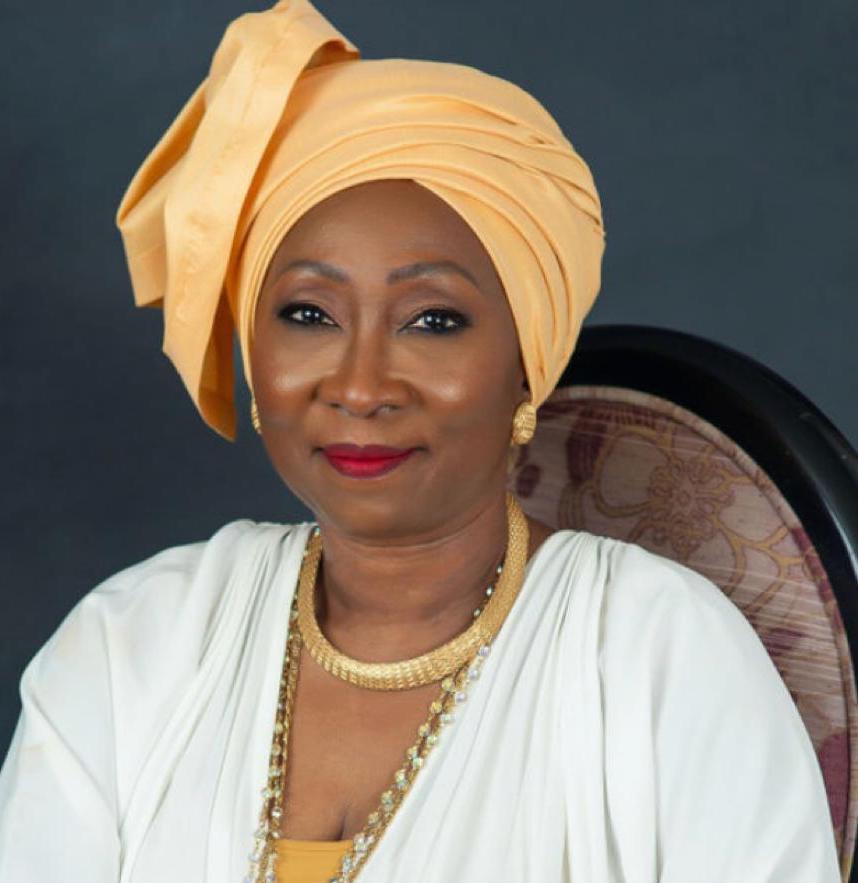Amina Oyagbola
In Nigeria, gender stereotypes in media and advertising have long been entrenched, perpetuating harmful norms and limiting the potential of women.
According to recent surveys, a staggering 54% of respondents believe that Nigerian media, including television, advertisements, and public communication, only depict women and men in certain roles.
Additionally, almost 40% of people believe that men should be paid more than women for the same job—an alarming testament to the prevalence of gender inequality in our society.
As the world celebrated Women’s History Month this March, it was a moment to reflect on the progress made towards gender equality and the steps needed to create a more inclusive society.
At the recent Unstereotype Alliance Global Member Summit, held at the United Nations Headquarters, Mrs. Amina Oyagbola, the Founder of Women in Successful Careers (WISCAR), delivered a compelling speech on “Educating the Next Generation of Advertisers.” This year’s theme, “From Z to Alpha: Learning Initiatives to Break Stereotypes,” underscores the importance of empowering the next generation of leaders and dismantling harmful stereotypes.
Her insights shed light on the critical role mentorship and education play in breaking down barriers and fostering inclusive workplaces within the advertising industry.
In her address, Mrs. Oyagbola emphasized the significance of the Unstereotype Alliance’s new initiative, the NextGen Education Initiative, in shaping the future of advertising.
This initiative aims to engage and strengthen the professional pipeline, empowering aspiring industry leaders with the skills and knowledge needed to challenge stereotypes and drive positive change.
Through structured mentorship programs and advocacy efforts, organizations like WISCAR are at the forefront of promoting gender equality and inclusivity.
WISCAR’s collaborative approach and successes in talent development and stereotype dismantling serve as a beacon for the industry. By providing mentorship opportunities and fostering collaboration across diverse backgrounds, WISCAR has been instrumental in creating a more equitable and inclusive advertising landscape.
Mrs. Oyagbola highlighted the need for a global framework adaptable to local contexts, ensuring that education, mentorship, and advocacy efforts effectively address the unique challenges faced by aspiring advertisers.
For over 16 years, WISCAR has championed the cause of women’s inclusion and advancement through mentorship and strategic partnerships. Their initiatives, such as the WIN with WISCAR Mentoring Programs, have empowered over 15,000 women for leadership roles across various sectors, dismantling barriers and stereotypes in the workplace.
At the core of WISCAR’s initiatives lies the promotion of diversity and inclusion. They ensure that opportunities for growth are accessible to all without discrimination, enabling an environment where every individual, regardless of gender, race, or background, can thrive.
Acknowledging the talent crisis facing the advertising industry, WISCAR plays a vital role in addressing this issue through its collaborative approach. Their insights can inform a global framework for talent development and inclusion, ensuring that individuals from diverse backgrounds have equal opportunities to succeed.
WISCAR’s collaboration with UN Women and other strategic initiatives, such as the EU-UN Spotlight Initiative and the Private Sector-Led GBV Fund, demonstrates the power of partnerships in driving societal change. These initiatives aim to increase awareness, advocate for legislative change, and strengthen support for gender equality.
WISCAR’s belief in the power of intergenerational mentoring, is exemplified by initiatives like the Intergenerational Beijing +25 Mentorship program. By facilitating knowledge transfer and fostering structured mentoring relationships, WISCAR contributes to the development of future leaders and activists, by empowering women to step into leadership roles and become agents of change in their communities and beyond.
At its core, WISCAR’s mentorship initiatives serve as a cornerstone, demystifying gender roles, challenging stereotypes, and dismantling barriers that hinder women’s progress. As we celebrate International Women’s Day, WISCAR reminds us to challenge the status quo and embrace diversity. They’re leading the charge for a fairer world alongside the Unstereotype Alliance.
With a focus on changing systems, not just individuals, WISCAR will continue to advocate for policies that promote gender equality and challenging discriminatory practices. Together with the Unstereotype Alliance, they’re aiming to build a future where everyone, regardless of gender, can thrive.
About WISCAR
WISCAR is committed to empowering and enhancing the capabilities of professional women to contribute to the creation and growth of developmental enterprises in Nigeria. This is achieved through its bespoke and well-structured mentoring programmes that provide strategic career guidance, inspiration, and support to career women.
WISCAR has equipped over 15,000 professional women and men with relevant skills and competencies to effectively manage their careers, assume leadership positions, and contribute to nation-building.
Now in its 15th year, WISCAR is continuing its tradition of annual outreach and advocacy to working women aimed at developing women through leadership training and mentoring for professional development, leadership success, and overall well-being.
Quote
With a focus on changing systems, not just individuals, WISCAR will continue to advocate for policies that promote gender equality and challenging discriminatory practices. Together with the Unstereotype Alliance, they’re aiming to build a future where everyone, regardless of gender, can thrive
